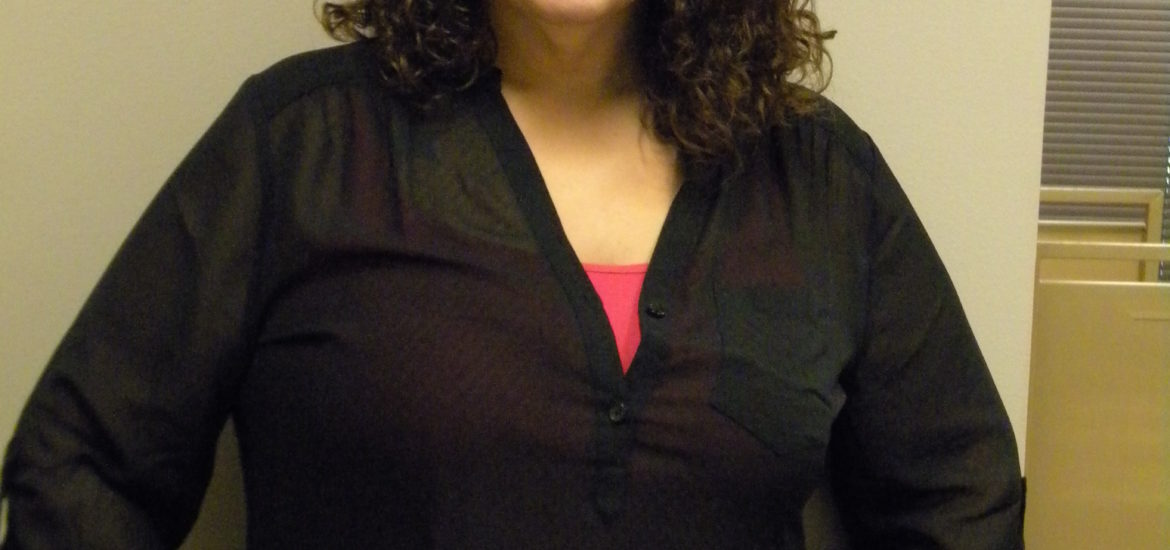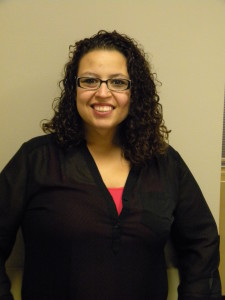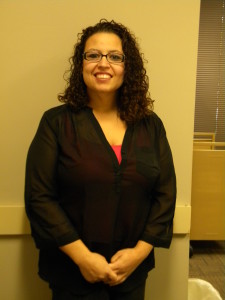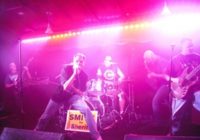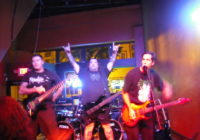This is a continuation of an interview with Sinclair Deaf Mentor Lottie Cassese. Part 1 can be viewed here.
“We want to present a new level of skills to our students because American Sign Language is not the only form of sign language. Some signing styles are more similar to English structure and some Deaf people prefer to communicate orally, so there’s a huge variety to each style for students.”
What do you think are some of the common misconceptions of the Deaf Community by the Hearing Community?
“I do think there are misconceptions, developments in technology invoke a chance to interact with Deaf people compared to the past. In older times there was definitely a more prejudiced view of Deaf people. In terms of their ability to do things, Deaf people would more likely not be included in a group. Now there is more of an opportunity for understanding, some hearing people are very flabbergasted to know a Deaf person could own a business or be a very successful individual. So Deaf folks are developing and growing like everyone else, so now with technology they are more able to receive the recognition they deserve.”
“Technology has helped the Deaf community be more interactive, you see more Deaf people on television like Switched at Birth, there’s also the show on Broadway Spring Awakening, America’s Top Model, you’re seeing more Deaf representation, Deaf folks are becoming more known in the media now. It’s a little frustrating to be understood, but now we have that opportunity to be heard.”
“There are also many Deaf authors and artists that are more visual, without technology it was easy to miss. Now we can see these artists.”
What are your opinions of cochlear implants and new hearing devices?
“I do not support cochlear implants. I also believe if a Deaf person is old enough to make their own decisions then it’s up to them. An issue I have is when they’re used on an infant. When that decision is made, that child is shut into their own world. So that child is Deaf but now with the implants they lose more hearing in the process because the nerves are damaged in the process of implanting. If a person is born with a hearing loss that’s common, if we decide to implant a baby it’s so critical that that child learn sign language.”
What are your plans after Sinclair?
“I take my life day by day. I could stay here another five years or I could move to another state. I know I want to go back to school at some point. One passion of mine is to encourage children to become leaders in the community.”
Is there any advice or words of wisdom you’d give to students learning ASL for communication and/or interpreting?
“I would encourage all parents to learn ASL for communication. If there’s no communication, they will feel lost and their language won’t be equivalent to their hearing peers. If a child has full access to communication in a house that uses ASL, their communication will develop well. Our youth are our future and I want to make sure our interpreting students are getting full access. I want all students to feel equal, remember we are all equals, no need to label Deaf and hearing. The point is to be in the culture and have that bond, for everyone to treat each other as equals.”
In the Deaf community is there a desire to hear by some?
“Just like any community, Deaf people are very diverse. Some people have mild hearing loss and can still listen to music and use the phone. I was raised in a Deaf family, not a lot of importance to hear. Sometimes I do wish I could hear what people’s voices are like. I’m interested to hear what accents sound like. We rely on our eyes, instead of our ears. It doesn’t really matter to be Deaf or hearing. “
Anything you’d like to personally say to the hearing community on behalf on the Deaf community.
“Don’t be afraid of a Deaf person, we don’t bite. Really the only difference is that we don’t hear well. We’re the same in every other way. There’s a famous quote. “A Deaf person can do anything but hear.” That was Irving King Jordan, the first Deaf president of Gallaudet University.”
“I went to Gallaudet myself for two years. In 1988 they decided to elect a hearing president and the student body revolted. Eventually they were successful and that president was elected. The university’s first Deaf female president will take office in January. That revolt was the catalyst in a widespread movement of knowledge for the Deaf community. Now Deaf people are more recognizable in the media and Deaf culture.
“I would tell a hearing person to use your gift. If you’re able to be an interpreter don’t give that up, if it’s something you want to do. It’s a struggle and not an easy path but if you keep working you will be successful. I’ve told many hearing students that you will get through it. But you do have to be patient and keep moving. I have to be patient with hearing students and be very positive and encouraging.”
“I have several students that are very regular in their attendance. And you can see that their abilities are developing, you can see that some people feel stuck, that they’re not getting any better and they can’t overcome this plateau but it’s ok. You have to keep trying and keep coming. I want hearing people to be more familiar with Deaf culture.”
“I would like if hearing people did not feel the need to use prejudice against the Deaf community. So hearing people learn different methods of communication than Deaf people. Hearing people often say, I’ll do that for you or I’ll take care of that for you and you end up babying a person and that is very oppressive. They don’t need to do that. I don’t look down upon a person because they’re hearing. So if someone, hearing were to look down on someone Deaf and do things for them, it’s an oppressive view point and they definitely feel it. It’s not a good way to interact. It’s very important for me to encourage hearing people to NOT use the words hearing impaired. “
“A dictionary definition would be ‘broken hearing’ and that’s not us. It’s very important to have people use correct terms.”
“Hearing impaired is often used in the hearing community, many of which are not educated on the correct terms or usage. So now they are trying to teach people it’s not OK, to put it to rest and use proper terminology like Deaf and hard of hearing.”
There are more places teaching ASL as second language.
“There are schools teaching ASL as a foreign language and that’s a great opportunity for a lot of students that come into this program early that are somewhat developed signing skills. You can learn ASL anywhere. It is so much more accessible now at churches, schools and colleges. It’s a great way to learn ASL.”
What are the differences between ASL and sign language overseas?
“A Deaf person using sign language will use their body, face and expressions. That will convey how they feel. A person could also use gestures to communicate. So if a foreign person came here, they would be better able to communicate with someone that knows ASL because they use body language and gestures and it’s a mutual form of communication though they don’t technically use the same form of language. If an English speaking person were to talk to someone with an accent, you’d be able to figure it out.”
“People that use sign language are very lucky because that can communicate very well. I went to Europe once with a school group and I met a person who was hearing and my teacher tried to communicate with them, a German person. It was clearly a struggle, a huge communication barrier, so I used gesture and visual language and she understood. It was very fascinating to me that with body language and visual cues you can communicate with someone from a different country.”

